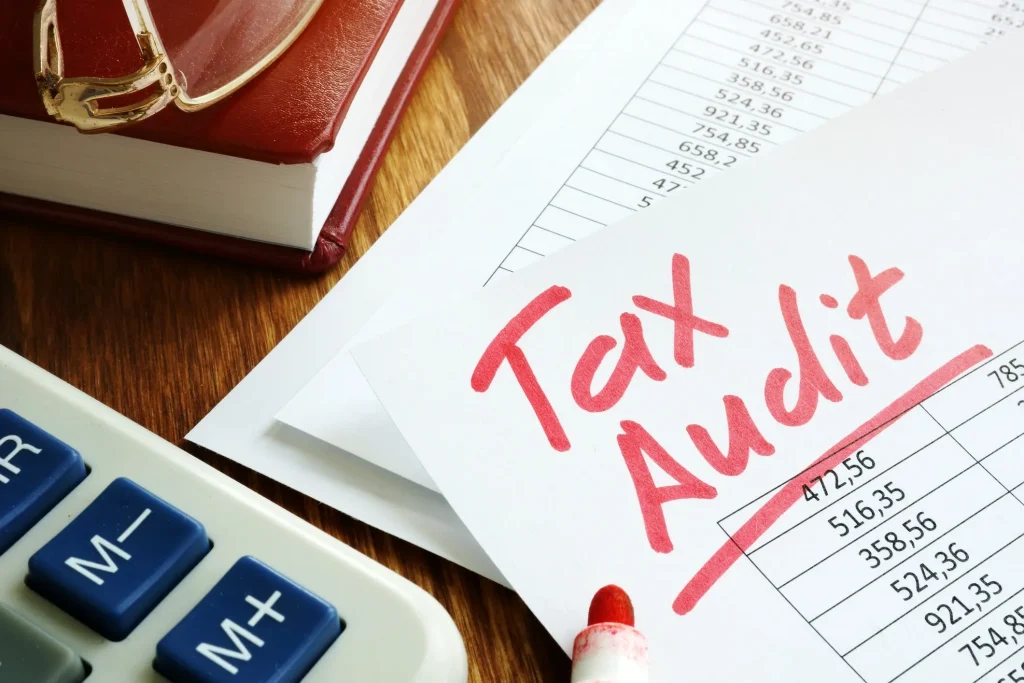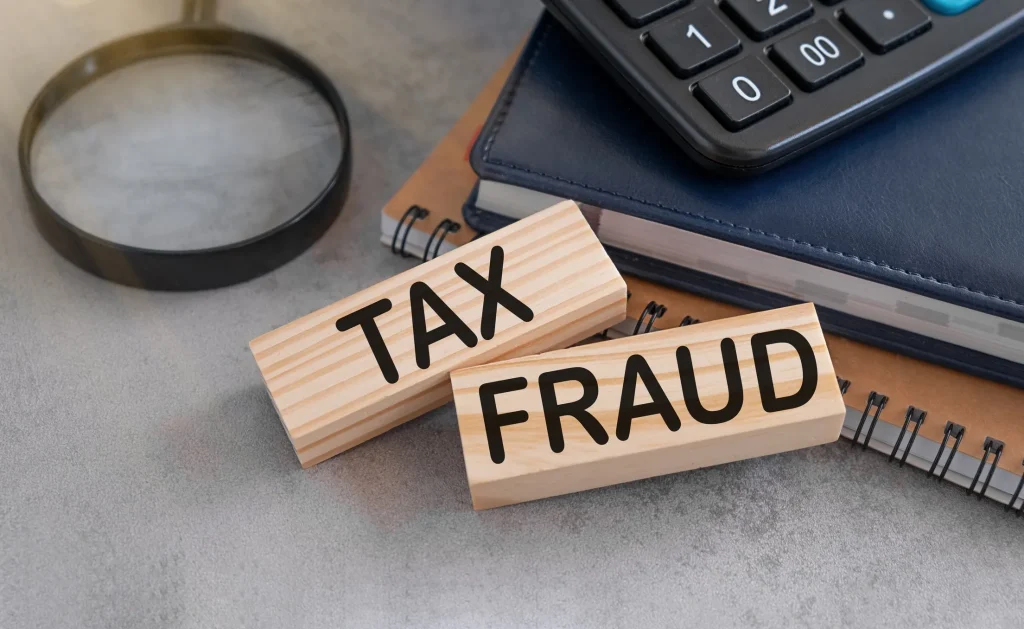 All citizens are required to submit an honest tax return each year, detailing their income, losses, and expenditures. The Internal Revenue Service (IRS) is the governmental organization responsible for monitoring these tax returns and investigating any suspected cases of tax fraud or tax evasion. If the numbers do not add up on your tax return, you could be selected for an IRS tax audit.
All citizens are required to submit an honest tax return each year, detailing their income, losses, and expenditures. The Internal Revenue Service (IRS) is the governmental organization responsible for monitoring these tax returns and investigating any suspected cases of tax fraud or tax evasion. If the numbers do not add up on your tax return, you could be selected for an IRS tax audit.
If you become the subject of an IRS audit, it is important to have strong legal representation by your side. Being found guilty of fraud or tax evasion in an IRS audit can have serious consequences, including tax penalties, fines, and a civil or criminal investigation. On top of this, you could face additional taxes each year because of a tax rate change.
An experienced tax attorney will ensure that your rights are protected throughout the audit process, submit documentation on your behalf, reduce your tax obligations, fight against any tax audit penalties, and lodge an appeal on your behalf if you are found guilty.
Ronald Arthur Stearns, Attorney at Law.
Ronald Arthur Stearns, Attorney at Law. has been handling IRS audits and tax matters for over 26 years. When it comes to the audit process, our law firm has an in-depth knowledge of the legal requirements and experience getting clients through the process with the best possible outcomes.
The consequences of being found guilty in a tax audit are severe, and you could face civil or criminal penalties depending on your situation. Our law firm can help you by appealing the decision and fighting for your innocence in a hearing. We will gather documentation to support your taxes, advise you on tax law, negotiate to avoid any criminal or civil penalties, and fight on your behalf.
Ronald Arthur Stearns, Attorney at Law has the skills necessary to ensure the best possible outcome in your IRS audit. He has been recognized by the State Bar of Texas and the American Bar Association and has significant experience helping clients through situations similar to yours.
Call our law firm today to schedule a consultation at 210-853-2135.
Why Am I The Subject of a Tax Audit?
 The IRS conducts most audits on a random selection basis. A lot of cases that are selected at random by the IRS result in no changes being made. The auditor will require you to submit additional documentation to prove your tax returns are legitimate, and you will not need to pay any extra money.
The IRS conducts most audits on a random selection basis. A lot of cases that are selected at random by the IRS result in no changes being made. The auditor will require you to submit additional documentation to prove your tax returns are legitimate, and you will not need to pay any extra money.
However, the IRS is always checking tax returns to see if the numbers all add up. If they do not, or if something in your return raises their alarm bells, you could be selected for a tax audit.
Failing To Report Income
The IRS may request an audit if they discover you failed to report taxable income or under-reported income from the previous tax year. The most common example of this is someone who works a contract job and does some freelance work on the side, however, does not report their side income.
As a taxpayer, you are required to submit a W-2 form and Form 1099 if you do freelance work. Although you may be tempted to submit only the W-2 form, it is likely that your contractor submitted the 1099 form detailing your freelance employment. As a result, the IRS already knows about your freelance work and if you do not submit the form, IRS auditors could come after you.
You are also required to report income generated through savings, investments, and cryptocurrency. Failure to report this could lead to an IRS audit.
Major Losses or Deductions
 The federal government is likely to get suspicious of your tax return if you listed too many losses, deductions, or expenses. The IRS is strict toward those who pay self-employment taxes. All purchases that you make for your business must be ordinary and necessary. If you are listing a weekend spa trip as a business expense, you are likely to raise suspicions.
The federal government is likely to get suspicious of your tax return if you listed too many losses, deductions, or expenses. The IRS is strict toward those who pay self-employment taxes. All purchases that you make for your business must be ordinary and necessary. If you are listing a weekend spa trip as a business expense, you are likely to raise suspicions.
The same applies to charitable donations. If you are listing charitable donations in your tax return, it is vital that you have the correct documentation to support this donation. If you are making $50,000 a year and making charitable donations of $15,000, the IRS may select you for an audit.
Foreign Income
Receiving income from businesses abroad is quite complicated. The tax code requires that if you have foreign bank accounts containing assets worth more than $50,000, you must submit Form 8938 to report these assets. If you fail to report this income, or if there are miscalculations, the IRS could select you for an audit.
Often those who make money abroad get confused about their tax requirements in the US. We recommend hiring an experienced tax lawyer to help you report foreign income and ensure that you are not found guilty of tax avoidance.
Suspicion of Unpaid Tax or Tax Fraud
 Regardless of what reason it is, if the IRS suspects you are avoiding taxes, committing tax fraud, or that you simply owe money through liability, they may come after you. If you miscalculated your tax liability, made a math mistake on your income tax return, or failed to abide by tax laws when submitting your income returns, you could be selected for an audit.
Regardless of what reason it is, if the IRS suspects you are avoiding taxes, committing tax fraud, or that you simply owe money through liability, they may come after you. If you miscalculated your tax liability, made a math mistake on your income tax return, or failed to abide by tax laws when submitting your income returns, you could be selected for an audit.
It is important that you always have the correct documentation to submit to the IRS office in the event of an audit. Even if you make a mistake on your returns leading to an IRS audit, once you have the supporting documentation and the help of an experienced attorney, you will hopefully avoid any serious penalties.
Outcomes of IRS Audits
After being selected for an audit, the IRS will request additional documentation to support your tax returns and liability. The auditor will examine the documentation and assess whether changes need to be made or everything is ok. There are typically three different outcomes of an IRS audit, which will be sent out to you in an audit report.
No Change Audit
Sometimes, the IRS may examine your taxes with the supporting documentation and determine that there are no changes that need to be made. This is the best possible result in an IRS audit, as it means that you do not owe additional taxes and your tax rate will not be changed. This is the equivalent of being found ‘not guilty’.
Changes and Additional Taxes
If the IRS office determines that your tax returns do not add up and you owe money to the government, they will request changes to your tax liability. They will request that you pay back the money that you owe in taxes and change your tax rate, which will mean you pay more taxes in the following year.
If they determine that you have committed tax fraud or tax evasion, you may have to pay a tax audit penalty or civil fraud penalty. Civil fraud penalties amount to 75% of the tax that was not paid to the government. So, if the IRS determines that you fraudulently filed taxes and owe $100,000, you will be required to pay $175,000, which is adding the 75% penalty.
If you agree to these changes and want to pay civil fraud penalties and the tax that you owe, you can do so by corresponding with the IRS and following the instructions sent out on the report. However, we strongly advise against this and stress the importance of your right to appeal the matter, with the help of an aggressive tax attorney.
Appeals and Litigation
If you do not agree with the audit findings, you can send the IRS a letter of protest, which will start the appeal process. Exercising your right to appeal is essential in audit cases. If you respond to an audit report by paying the tax you allegedly owe, you are admitting guilt and accepting the changes proposed by the IRS.
The tax penalties you receive for alleged fraud or tax evasion can be severe, and you could be left in a rough financial situation by paying the audit penalties. Because of this, our law office always advises our clients to appeal the results of a guilty tax audit.
Our lawyers can help you contact the IRS auditor, request an appeal through a letter of protest, or file an appeal with the tax court. It is important to act fast in these cases, as you only have 90 days from when you receive the report in the mail. If you do not appeal within this time frame, you are admitting guilt to the auditors and will have to pay back taxes and potentially audit penalties.
What Happens If You Get Audited and Are Found Guilty?
Most tax audits are resolved through tax changes or no change to a person’s taxes. However, in some cases, when the IRS suspects fraud or tax evasion, they will begin a criminal or civil investigation against the taxpayer. The consequences of both civil and criminal investigations are severe and if found guilty, the taxpayer must pay huge fines, potentially spend time in prison, and receive a criminal record.
Civil Investigation
If the IRS initiates a civil fraud investigation against you and they find you guilty, they will request that you pay a civil fraud penalty, which is the equivalent of 75% of the tax that you fraudulently did not pay. However, if you challenge their findings and begin the appeal process, they must prove using evidence that you have committed tax fraud.
Proving Guilt in Civil Fraud Cases
The government must show that you made an underpayment of tax each year and that you had fraudulent intent. To prove an underpayment of tax, the government must simply show that you did not report all of your income, which can be proved through amended tax returns or other proof of additional income.
To prove fraudulent intent, the government typically uses “badges of fraud” which show that the taxpayer failed to report income or taxes with the purpose of defrauding the government. Some badges the IRS can use include:
- Understating income.
- Irregularities in accounting, such as two separate books.
- False statements, transfer of assets, concealment of assets, or other obstructive actions.
- A pattern of under-reporting over a couple of years.
- Large deductions that do not add up.
- Not filing tax returns.
If the government does not provide substantial evidence proving that you committed tax fraud, you will not have to pay the civil fraud penalty. However, you will need an experienced tax lawyer to help you prove your innocence and fight against the government in a civil court.
Criminal Investigation
More serious than a civil investigation, taxpayers in Texas may become subject to a criminal tax investigation. Being found guilty of criminal tax fraud or evasion can have serious consequences, including huge fines and time in prison.
The process of a criminal audit investigation can also be quite intimidating. When criminal proceedings begin, a Special Agent is usually appointed to investigate your case. They will use invasive tactics to get information out of you, including contacting your employer, family, and friends.
They may show up at your workplace or call you outside of work hours to intimidate you. Although you have an exclusive right to privacy and fairness, Special Agents do not always respect this right.
You will not be notified that you are under criminal investigation for fraud or evasion, however, there are certain warning signs that can suggest you are. For example, if you are under a civil investigation and the investigation is cut off before completion, you may have become the subject of a criminal investigation.
If you believe you are being investigated for criminal fraud or tax evasion, speak with an attorney as soon as possible. The consequences of being found guilty of criminal fraud are severe, and the only way to protect yourself is with a highly experienced tax lawyer by your side.
IRS Audit Penalties
The primary consequence of being audited and found guilty is that you will receive penalties. Depending on your situation, the IRS penalties could include paying back taxes owed plus interest and additional tax audit penalties.
Auditors can go back several years and assess how much tax you underpaid, and add at least 20% of an IRS audit penalty on top of this.
If you cannot pay back these taxes because of financial difficulties or other reasons, you can appeal the decision or get your lawyer to set up an IRS installment agreement for monthly payments.
Criminal Penalties
Unfortunately, being found guilty of criminal charges has more severe consequences. The government will only initiate criminal proceedings if they have a genuine reason to believe that you have been committing fraud or avoiding tax.
Usually, they will only begin an investigation if there is more than $10,000 worth of unpaid tax. This is because criminal investigations require a lot of time and effort and the burden of proof is high.
If the prosecutor can successfully prove that you have committed fraud on your taxes, you will face up to $250,000 in fines, 5 years in prison, and all the court costs, which can be substantial. If you evade taxes, the penalty is 1 year in prison, $250,000 in fines, and court costs.
Often, a guilty finding in a criminal case is used to prove civil fraud separately. This means that if you are found guilty in a criminal tax case and receive criminal penalties, you may also receive civil penalties, which equals 75% of the tax you did not file plus the amount that you owe. The result could be a significant amount of money and a criminal record.
Because of these severe penalties, we strongly advise seeking legal representation when going through an audit. All it takes is one minor admission of guilt to start a criminal investigation, and if you do not have financial records to support your income tax returns, you could end up in jail.
How a Tax Attorney Can Help You
Receiving a notification in the mail for an audit is overwhelming. Taxpayers often panic and believe they have done something wrong. In most cases, the IRS is simply checking to see that you have the right documents to prove your tax liability. However, they may suspect that you are avoiding paying taxes, which can lead to a more serious investigation.
By hiring a tax lawyer, you can ensure that your rights will be protected throughout the audit process. Lawyers have significant experience going through audits, and they will know a lot more about the laws, regulations, and requirements.
They will also be able to assess whether the IRS is civilly or criminally investigating you for more serious charges. If this is the case, they will begin gathering evidence to support your case, giving them more time.
Negotiation
A lawyer will speak on your behalf to auditors and special agents, ensuring that you do not say the wrong thing, which could end in admitting guilt. They can fight against the aggressive tactics of auditors and investigators to ensure that you are not intimidated and that your best interests are respected. The tax attorneys at Ronald Arthur Stearns, Attorney at Law have strong negotiation skills, and we know what to say to get the best possible outcome for your case.
Appeals
If you are audited and found guilty of underpaying or avoiding tax, you can appeal the decision to avoid tax increases and tax audit penalties. Initiating and carrying out an appeal can be quite complicated. However, tax attorneys that have significant experience with audit appeals can handle this process for you with ease.
Advice
The most important job of a tax lawyer is to advise their clients on what is the best option. Most American taxpayers do not have a deep understanding of how the audit process works and what is required of them. Because of this, people often make genuine mistakes when filing their taxes, which can cause them some trouble down the line.
Your lawyer can assess whether there is sufficient evidence against you, advise you to either appeal the decision or pay the fine, and help you understand the audit process. They should offer a lending ear to problems that you have and ensure that you completely understand what you are going through.
What Happens If You Are Audited and Found Guilty?
Being found guilty of underpaid tax, tax evasion, or fraud can have serious consequences. You may be subject to tax audit penalties, civil penalties, or even criminal prosecution. If criminally convicted of fraud, you could face up to 5 years in prison and fines of up to $250,000, in addition to court costs and the tax that you owe.
The government is tough on individuals who they suspect are avoiding tax or deliberately underpaying, and they may use intrusive methods to ensure that you are found guilty. You have several rights that need to be respected throughout the audit process. However, the only way to ensure these are protected is by hiring strong legal representation.
Ronald Arthur Stearns, Attorney at Law – Tax Audit Defense Attorney
Ronald Arthur Stearns, Attorney at Law has seen first-hand how the government cracks down on taxpayers during audits. In many cases, the government may not have enough evidence to prove your guilt. However, unless you challenge their findings, you will face severe tax penalties and potentially a criminal record.
Our law firm has the skills and experience necessary to help guide you through the audit process. We will submit forms and documentation on your behalf, ensure that your records are in order, and try to prevent you from being found guilty of fraud or tax evasion.
If you are found guilty, we will lodge an appeal on your behalf and fight aggressively to prevent serious penalties. Our priority is protecting your rights and standing up to the IRS on your behalf.
Call us today to schedule a consultation at 210-853-2135.
